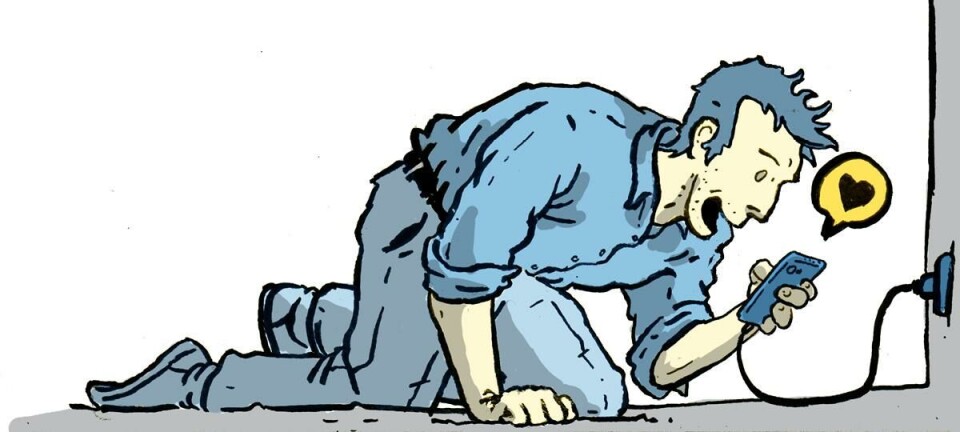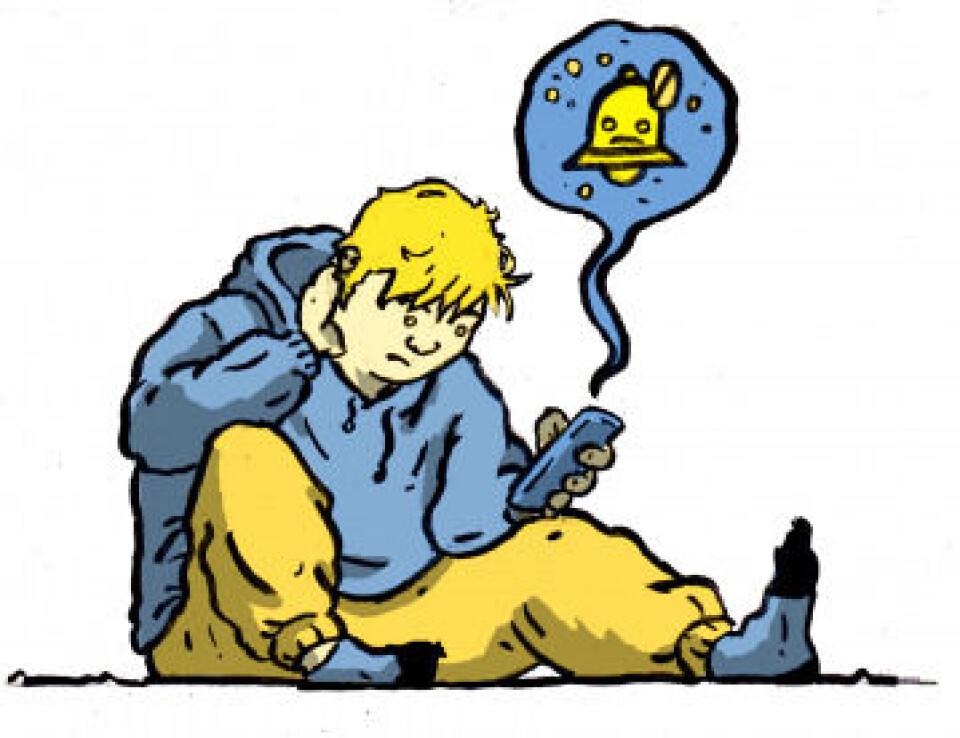article> 'I have become closer with my friends'
Quitting social media for three months: a student testimonial

Anna Claes went offline on all social media account for three months and showed withdrawal symptoms. Three experts reflect on her experiences.
Originally written in Dutch for Veto by Anna Claes and Manon Cools
Translated by Alon Nudler
Originally published on March 28, 2022
On December 3rd, 2021, anthropology master student, Anna Claes scrolled through her last posts for that year. At midnight, she signed out of all accounts she had on her phone; Facebook, Messenger, Instagram, Snapchat, and even YouTube and Reddit. All of them had to go.
She did this on a challenge put out by Veto, and kept a record of her feelings until finally returning online on February 28th.
Kicking the habit
In the first weeks Anna realized just how much time she spent online. 'I soon understood how often I was aimlessly scrolling through Facebook and Instagram', she says in one of her audio logs. 'It was only when I was looking at the login screen that I realized how my fingers had automatically brought me here. The platforms have become part of my daily life.'
'Nothing better than a bit of boredom'
Koen Ponnet, professor of media psychology, UGent
Koen Ponnet, professor of media psychology at the UGent suggests that this is simply an effect of classical conditioning. 'Does Pavlov’s dog ring a bell? In his experiment dogs were given food together with the sound of a bell. Those separate stimuli quickly became intertwined so that the dogs began to salivate at just the sound of the bell.'
'Your smartphone works in a similar way', he explains. 'When you get a notification, you become conditioned to spend time on the applications.' It is all about social rewards, which come in a form of likes and digital interactions.
Even after a month Anna found herself being curious about the things that she was missing. 'Youtube is so tempting, because you do not even need an account to use it. Apps are deeply ingrained in our lives and it is hard to ignore them.'

Relaxation and boredom
After a while, Anna noticed that she was getting more done in a day. 'From a studying perspective, it was very helpful. I had nothing better to do, so I was productive.' Ponnet explains how this is very common: 'We have a hard time combining two different types of visual stimuli.'
That would be the same thing as listening to two conversations at the same time. Combining two different forms of stimuli is, however, possible. For example, listening to music while you drive. When you cannot combine two kinds of the same stimuli but still try to switch between them, it takes a toll on your mind: the transition between tasks will cost time - hence the term switch cost. In that regard, multitasking is a myth.
'One of the reasons I took on this challenge is the prospect that it would bring me peace of mind', reflects Anna. 'In the months leading up to the experiment, I was on social media a lot.'
‘I feel closer to my friends’
Anna Claes
Boredom is being filled by screen time in today's society. In the waiting room, for example, everyone takes out their phone. 'That's a shame', Ponnet opts. 'It is precisely those moments when your creativity flourishes. There is nothing better than a little boredom in life.'
FOMO
'People around me keep forgetting that I am no longer on social media. Society assumes that you are on at least one of the platforms. You depend very heavily on others to keep you informed', a frustrated Anna says in a recording a few weeks in.
Kathleen Beullens, professor of communication at KU Leuven, also sees positive sides to social media. 'In society, smartphones are often seen as negative, but you can also get a lot of satisfaction from using social media. Suppose, for example, you see a post from your friends at a cafe, you can use that information to join them.'
We have come to know this as FOMO; fear of missing out. Ponnet explains how that too is involved in classical conditioning: 'Social media users are confronted with social comparison, whether it is positive or not. Your behaviour becomes continuously reinforced.'
'Being on your smartphone often is not an addiction as long as you function within society'
Kathleen Beullens, professor of communication, KU Leuven
Still, Anna feels that she is closer to her friends now: 'I am looking for other ways to keep in touch with people. Mainly via text message, but that is often for practical reasons. When I call, the conversation is often much better.'
It's about you, not the phone
'After the experiment, I quickly fell back into my old habits', Anna admits. 'In the beginning it was exciting and new, but you soon get used to the stimuli. My concentration has improved, but going offline completely is not a magical spell to make you happier', she concludes.
Michaël Opgenhaffen, professor of digital media at KU Leuven, believes that it is no longer realistic to completely withdraw from social media: 'We need to protect ourselves against the dangers, but also welcome the advantages.' Beullens agrees and states that social platforms offer a lot of support in our daily lives. According to her, problematic media behaviour depends on the type of use, the user themselves and the context.
'It is not a black-and-white story,' says Beullens 'and it is not about the technology itself, but rather what you do with it and how you feel about it.' According to the professor, it requires self-awareness. Think for yourself: is it enough to turn off your notifications when you study? Or is it better to keep your smartphone completely out of sight?
A detox like Anna's is a good way to reflect on your life, but you can also do so in a less extreme way. Opgenhaffen agrees: 'It is good to occasionally reflect on what you have posted, reacted to and how you felt. This way you become more aware of your time investment and the perhaps somewhat negative behaviors on those platforms.'
Beullens compares it to going on a diet and recommends keeping a diary for a few days. Your phone’s settings can show you on which apps you have spent the most time. 'Being on your smartphone often is not an addiction as long as you function within society', she concludes.





